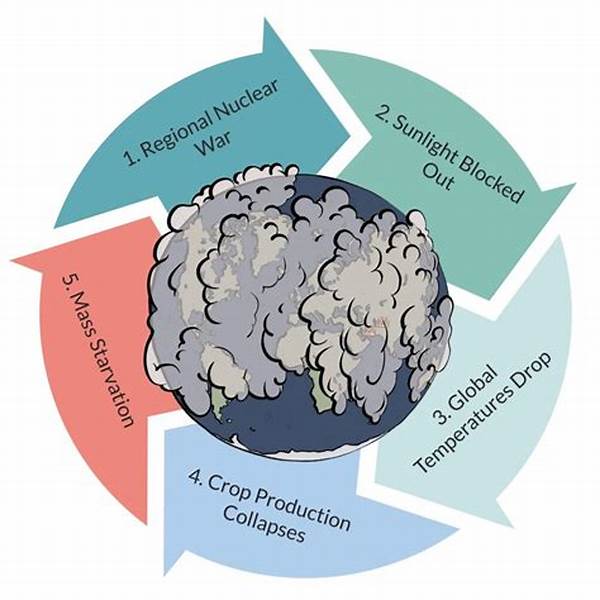In an era marked by rapid technological advancement and geopolitical complexities, the prevention of nuclear warfare has become a paramount concern for the international community. The potential consequences of a nuclear conflict are catastrophic and far-reaching, affecting not just the countries directly involved but also the entire global population. Consequently, there is an urgent need for robust mechanisms and cooperative strategies to avert such devastation.
The Importance of Diplomacy
Diplomacy stands as a cornerstone in the prevention of nuclear warfare. Through diplomatic channels, nations can negotiate disarmament treaties, establish communication hotlines, and promote dialogue that mitigates the risk of misunderstanding and miscalculation. Effective diplomacy requires mutual trust and commitment to peaceful resolutions, encouraging nations to prioritize diplomatic engagement over military confrontation. In essence, diplomacy serves as a critical tool in building a stable international environment that deters the use of nuclear weapons. The prevention of nuclear warfare relies heavily on nations’ abilities to engage in constructive and continuous dialogue, fostering peaceful relations and global security.
International Cooperation and Treaties
1. International treaties play a pivotal role in the prevention of nuclear warfare by establishing legally binding commitments to reduce and eventually eliminate nuclear arsenals.
2. The Non-Proliferation Treaty (NPT) exemplifies efforts to prevent the spread of nuclear weapons and facilitate disarmament, significantly contributing to global security objectives.
3. Verification mechanisms, such as inspections and satellite surveillance, are essential components of treaties, ensuring compliance and building trust among nations committed to the prevention of nuclear warfare.
4. Multilateral dialogues involving key nuclear and non-nuclear states are necessary to address underlying tensions and promote collective security measures aimed at the prevention of nuclear warfare.
5. Strengthening international organizations like the United Nations, which facilitate conflict resolution and peacekeeping efforts, is vital for maintaining peace and preventing nuclear warfare.
Technological Advancements and Their Role
Technological advancements have significantly impacted the strategies employed in the prevention of nuclear warfare. Innovations in communication and surveillance technologies enhance real-time monitoring capabilities, enabling rapid response measures to deter potential threats. Moreover, technological collaboration between nations can lead to the development of defense systems that intercept nuclear missiles, thus reducing the incentive for their use. However, these advancements also come with challenges, such as the risk of cyber-attacks on critical infrastructure, which could inadvertently escalate tensions and lead to nuclear engagement. Consequently, harnessing technology for peaceful purposes and ensuring stringent cybersecurity measures is indispensable for the prevention of nuclear warfare, necessitating a collaborative global effort to manage these technological dimensions.
Education and Public Awareness
Educating the public about the devastating effects of nuclear warfare is a crucial component in its prevention. Public awareness campaigns can inform citizens about the importance of nuclear disarmament and the roles individuals can play in advocating for peaceful solutions. Education initiatives aimed at younger generations can foster a culture of peace and diplomacy, ensuring that future leaders prioritize the prevention of nuclear warfare as a core tenet of international relations. Empowering individuals with knowledge not only mobilizes grassroots efforts towards advocacy but also pressures governments to engage more earnestly in disarmament discussions. Ultimately, a well-informed public is a powerful ally in the pursuit of global peace and security.
Economic Implications
Economic considerations are often intertwined with the prevention of nuclear warfare. The financial burden of maintaining nuclear arsenals diverts resources from essential areas such as healthcare, education, and infrastructure development. By redirecting these resources towards social and economic development, nations can foster more stable and prosperous societies, reducing the inclination towards militarization and conflict. Economic interdependence among nations serves as a deterrent to war, promoting cooperative economic policies that align with the goals of disarmament. Furthermore, the economic ramifications of a nuclear conflict would be devastating, underscoring the need for robust economic partnerships and stability measures to prevent such an outcome.
Psychological Aspects
The psychological impact of the threat of nuclear warfare cannot be understated. Fear and anxiety surrounding potential annihilation can lead to heightened tensions and distrust between nations, exacerbating conflicts. Psychological strategies focusing on building trust, reducing fear, and fostering positive inter-nation narratives are vital for preventing nuclear warfare. Initiatives that emphasize common humanity and shared values promote empathy and understanding, reducing the psychological barriers that contribute to hostility and confrontation. The prevention of nuclear warfare thus necessitates not only strategic and diplomatic efforts but also profound psychological insights that address the root causes of fear and misunderstanding.
Conclusion
The prevention of nuclear warfare is a multifaceted challenge that demands concerted efforts from every corner of the globe. From diplomatic negotiations and international treaties to technological innovations and public education, diverse strategies must converge to create a sustainable peace architecture. The collective will and cooperation of the international community are essential in addressing the myriad of factors that contribute to nuclear tensions. As nations recognize the catastrophic implications of nuclear warfare, they must be propelled towards action that guarantees the security and prosperity of all humankind. Through unwavering commitment and innovative collaboration, the abolition of nuclear threats can become a conceivable reality, paving the way for a secure and peaceful global order.





